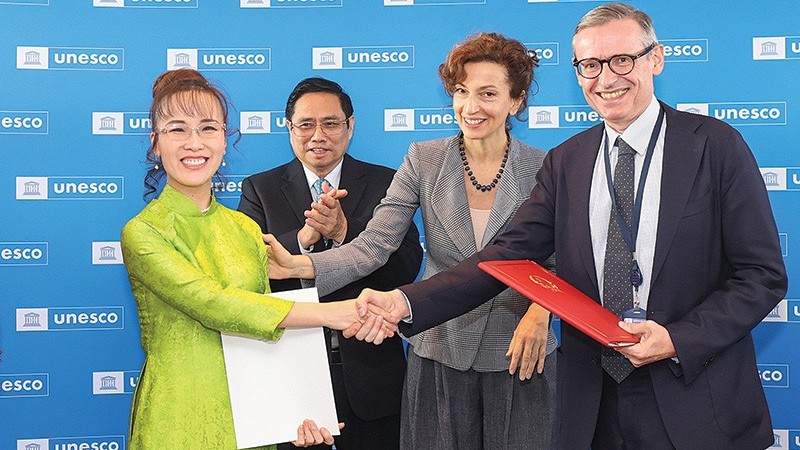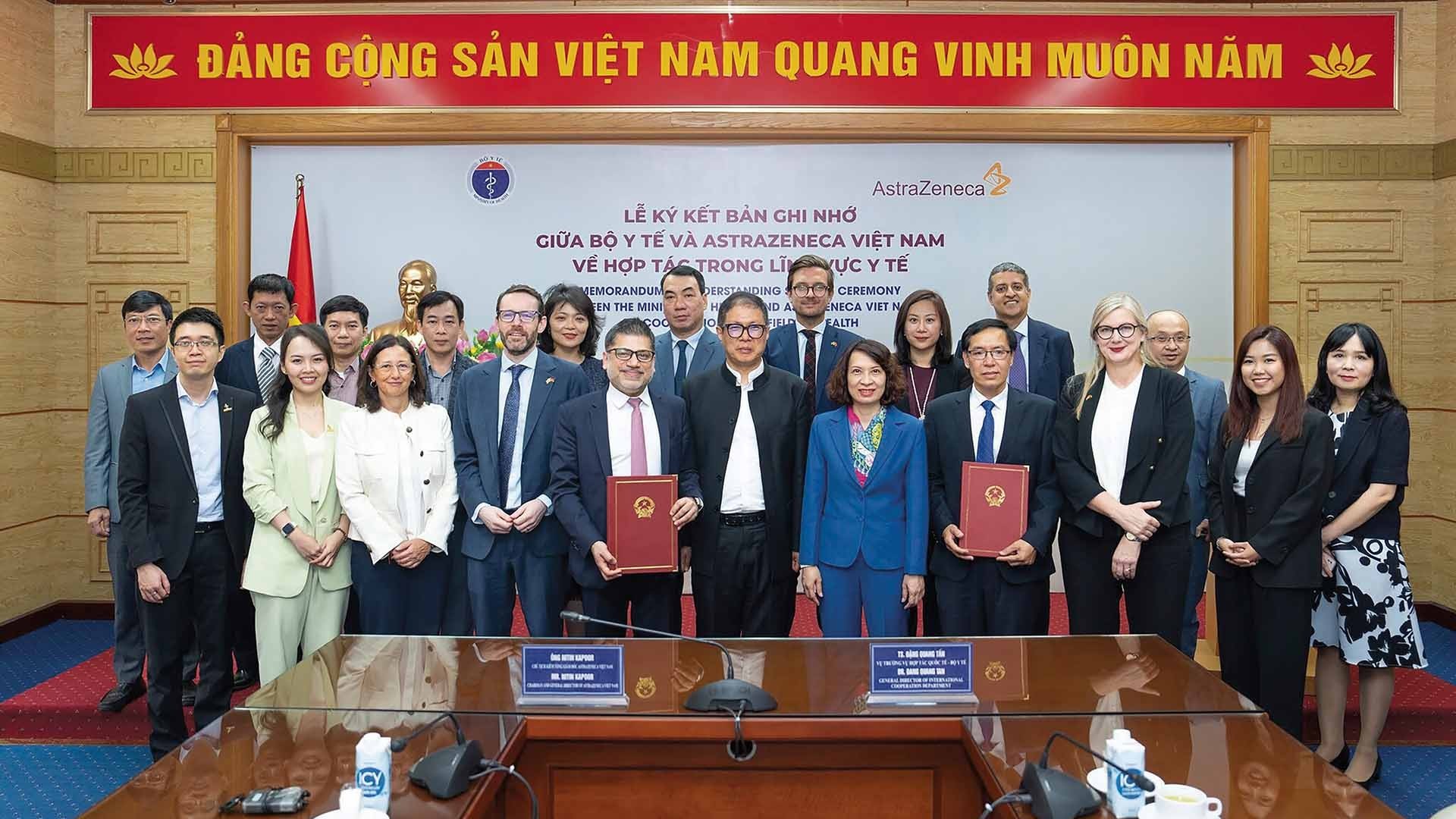
EuroCham: COVID-19 vaccine is a permanent way to heal economic wounds
Latest
 |
| Chairman of the European Chamber of Commerce in Vietnam (EuroCham) Alain Cany. |
How do you assess the 4th wave of COVID-19 pandemic situation in Viet Nam?
EuroCham members remain confident and optimistic about the long-term prospects of Viet Nam’s trade and investment environment. However, there is no doubt that the fourth wave of COVID-19 presents challenges for companies and their commercial operations.
This could have a short-term impact on confidence until a mass vaccination program can unlock normal business operations and loosen quarantine requirements for international travel.
In particular, EuroCham’s recent membership survey found that 70 per cent of business leaders were facing obstacles during this fourth wave, with 78 per cent of our members predicting that the current three-week quarantine requirements will lead to fewer investors and experts coming to Viet Nam. This could have a knock-on effect on trade and investment between Viet Nam and the European Union.
How will the new wave of COVID-19 affect the Vietnamese economy in general and European businesses in Viet Nam in particular?
Much depends on how long this fourth wave lasts, how soon the authorities can contain the spread of the virus, and how fast vaccines can be administered to the population.
Viet Nam successfully managed previous outbreaks through social distancing, quarantine, and contact tracing. However, this cannot continue forever without having an impact on growth; especially as other countries are rolling out vaccinations and re-opening their borders. These public health measures are a sticking plaster; not a permanent cure. We now need an urgent and ambitious mass vaccination program to ensure that Viet Nam can continue its strong economic growth into 2021.
There is no disguising the fact that the pandemic continues to impact on European companies in Viet Nam. Our members in all sectors have been affected to some degree, but most of all those in the tourism, hospitality, and aviation industries. One of the acute pain points for our members continues to be quarantine requirements where the same rules apply regardless of whether someone has been vaccinated.
If the government can repeat its success in the previous three waves with a new, vaccine-led approach, there is no reason that this fourth wave should inflict long-term damage on the economy. Viet Nam bounced back from previous outbreaks, recording one of the strongest GDP increases in the world in 2020. There is no reason it cannot do so again.
As for European businesses in Viet Nam, what do they want most when doing business in Viet Nam at the moment?
In the short term, European companies want to get back to business as usual as soon as possible. This requires a mass vaccination program to protect the population and ensure that re-opening the economy does not create a risk to public health.
Our members are also keen that the current three-week quarantine requirements are eased for investors and experts who have been vaccinated in their home countries. More than 80 per cent of business leaders support the idea of a separate, shorter procedure for vaccinated business travellers. This would help to increase trade and investment and help Viet Nam rebound and recover from the pandemic.
For instance, the EU is working on a "digital green certificate" to enable people to travel across the bloc’s 27 member states. The government could consider a similar scheme to enable those who have received a vaccine to come here for business or investment activities, as this would support Viet Nam’s economic growth without undermining its public health efforts.
What do you think about the importance of the COVID-19 vaccine at the moment?
The COVID-19 vaccine is the key to unlocking Viet Nam’s borders, resuming normal business operations, and re-starting frictionless international travel. Public health measures such as social distancing, contact tracing, and strict quarantine were essential to prevent the spread of the virus during previous waves.
However, these are not a permanent solution and could risk long-term economic growth now that other countries are rolling out mass vaccination programs.
Viet Nam has set an ambitious but achievable target of vaccinating 75 per cent of the population. This must now be the urgent focus of the government, with the support of the private sector and other international partner organizations. If this target can be met, it would help to achieve the dual goals of protecting health and delivering economic growth.
Currently, Viet Nam is still facing many difficulties in accessing the COVID-19 vaccine. This is also the common situation of many countries, especially developing countries. So how can European businesses help Viet Nam in accessing the COVID-19 vaccine?
EuroCham is dedicated to supporting the government and the Vietnamese people during this fourth wave. Viet Nam has raised the bar for preventing the spread of the virus, introducing swift and effective public health measures which have kept cases to a minimum.
However - now that vaccines are available - the challenge has shifted from targeted containment to widespread inoculation. Other countries are rolling out mass vaccination programs and reopening their economies, so Viet Nam now needs to match its earlier success with an ambitious and accelerated mass vaccination program implemented at scale and pace.
EuroCham wants to help achieve this with all the tools at our disposal. In particular, our chamber contains some of the world’s leading companies in the medical device, pharmaceutical, and logistics industries. We are supporting these members to share their experience and expertise with Viet Nam to speed up this vaccination drive.
There is also a great willingness from many of our companies who have the resources to do so to meet the cost of vaccinating their own staff. This could help to ease the burden on government finances while also helping normal business activities to resume as soon as possible.
In practical terms, one of our suggestions would be a public-private partnership between the state and the private sector. This could utilize the bulk purchasing power and local networks of the government to enable vaccination to take place at scale. Meanwhile, the program could be accelerated through the innovation and international expertise of private enterprise. The government will take the lead, of course.
However, our member companies would be pleased to be part of Viet Nam’s fight against the pandemic. Together, we can help protect the public while also supporting economic growth and a return to normal life.
According to EuroCham, up to 79% of businesses think that they can buy vaccines themselves to vaccinate their employees. Does this idea ensure vaccine quality and safety when using vaccines on a large scale?
Many of our members are willing to fund the cost of vaccinating their workforce. The government will take the lead in terms of procurement, as this will guarantee the provision of safe and effective inoculations; but those companies with the resources to do so would be pleased to help speed up Viet Nam’s vaccination drive by covering the cost of protecting their own teams.
We know that the public supports this idea: according to a recent survey, 68 per cent of Vietnamese people agreed that private companies should be able to support Viet Nam’s vaccination drive in this way.

















